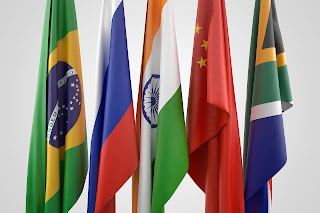BRICS Membership: Paving the Path to Economic Prosperity and Fair Trade
In an increasingly interconnected global economy, countries are constantly seeking opportunities to enhance their economic growth and foster fair trade relations. One avenue that has gained significant attention is the BRICS grouping, comprised of Brazil, Russia, India, China, and South Africa. Joining the BRICS consortium offers member countries the potential for substantial economic benefits and a more equitable trading environment. In this article, we will explore how countries can benefit from joining BRICS, and how this association can lead to improved economic prospects and fairer trade practices.
I. Strengthened Economic Growth
One of the key advantages of joining BRICS is the potential for accelerated economic growth. The member countries collectively represent a substantial portion of the global population and GDP. This sizable market creates opportunities for increased trade, investment, and technological collaboration among member nations. By aligning with BRICS, countries can tap into a vast consumer base and access new markets that might have been previously out of reach. This increased market access can contribute to a boost in exports, leading to improved economic performance.
II. Enhanced Investment Opportunities
BRICS countries are known for their significant investment potential. These nations boast diverse economies, abundant natural resources, and a growing pool of skilled labor. By becoming a part of BRICS, countries gain access to a network of potential investors, partners, and collaborators. Foreign direct investment (FDI) flows between member countries can increase significantly, leading to the creation of new businesses, jobs, and industries. Such investments can contribute to technological advancements, infrastructure development, and overall economic modernization.
III. Collaboration in Emerging Sectors
The BRICS grouping places a strong emphasis on cooperation in emerging sectors such as technology, innovation, and renewable energy. By joining this consortium, countries can benefit from knowledge-sharing and expertise transfer in areas that are crucial for future economic growth. Collaborative research and development initiatives can lead to breakthrough innovations and advancements that drive economic diversification and sustainability.
IV. Fairer Trade Practices
One of the central goals of BRICS is to promote fairer trade practices and challenge the existing global economic order. Traditional trade dynamics often favor developed nations, leaving developing countries at a disadvantage. Through collective bargaining and negotiation, BRICS member countries can work together to create a more equitable international trade environment. This can involve reducing trade barriers, advocating for transparent trade rules, and promoting the interests of developing economies on the global stage.
V. Leveraging Collective Bargaining Power
BRICS countries collectively wield significant economic and geopolitical influence. As a united front, these nations can exert stronger bargaining power in international forums and negotiations. By joining BRICS, countries can align themselves with like-minded nations and amplify their voice in matters related to trade agreements, climate change, and global governance. This collective approach can lead to the establishment of more favorable trade terms and policies that benefit member countries' economies.
VI. Access to Development Finance
BRICS nations have taken steps to establish financial institutions that cater to the specific needs of developing countries. The New Development Bank (NDB) is one such example, providing funding for infrastructure and sustainable development projects. Member countries that join BRICS can access this pool of development finance, which can be instrumental in addressing critical infrastructure gaps, fostering economic growth, and improving living standards.
VII. Geopolitical Significance
Membership in BRICS goes beyond economic benefits—it also holds geopolitical significance. The consortium serves as a counterbalance to the dominance of traditional global powers, offering a platform for emerging economies to collaborate and shape the international agenda. For member countries, aligning with BRICS can enhance their diplomatic standing and amplify their influence on the global stage.
Joining the BRICS consortium opens up a world of economic opportunities for member countries. From strengthened economic growth and enhanced investment prospects to fairer trade practices and collective bargaining power, the advantages are undeniable. BRICS represents a pathway to tapping into a vast market, accessing development finance, and collaborating in emerging sectors critical for future prosperity. By becoming part of this group, countries position themselves on the global map as influential players, committed to shaping a more equitable and sustainable world economy.

.jpg)


Comments
Post a Comment